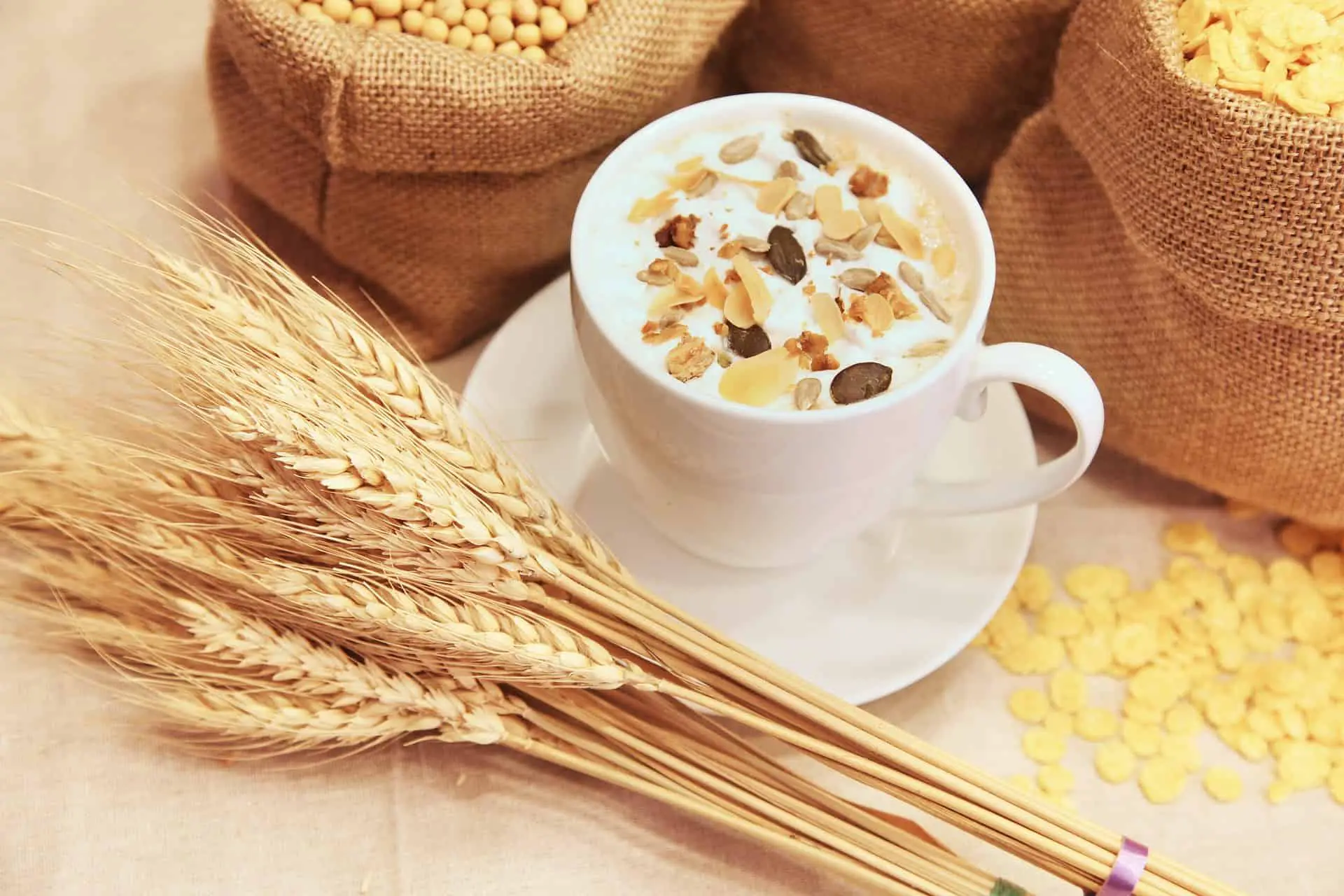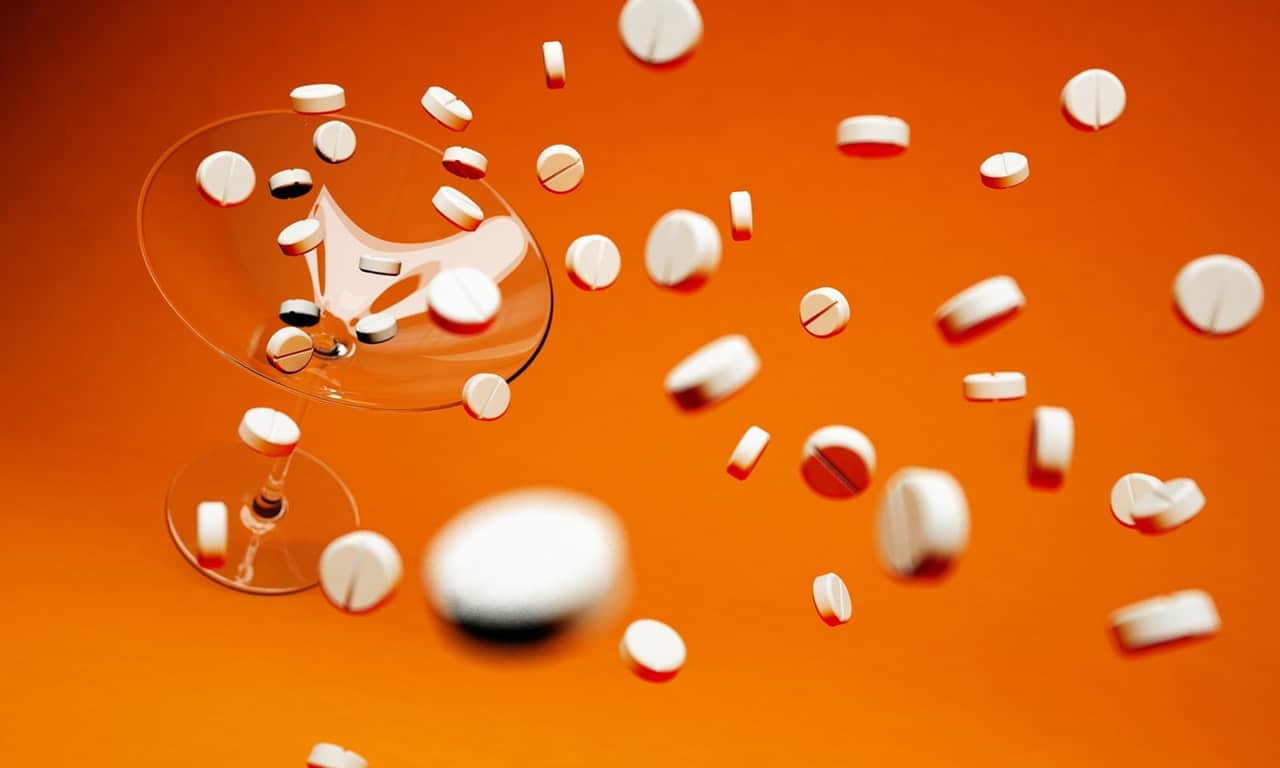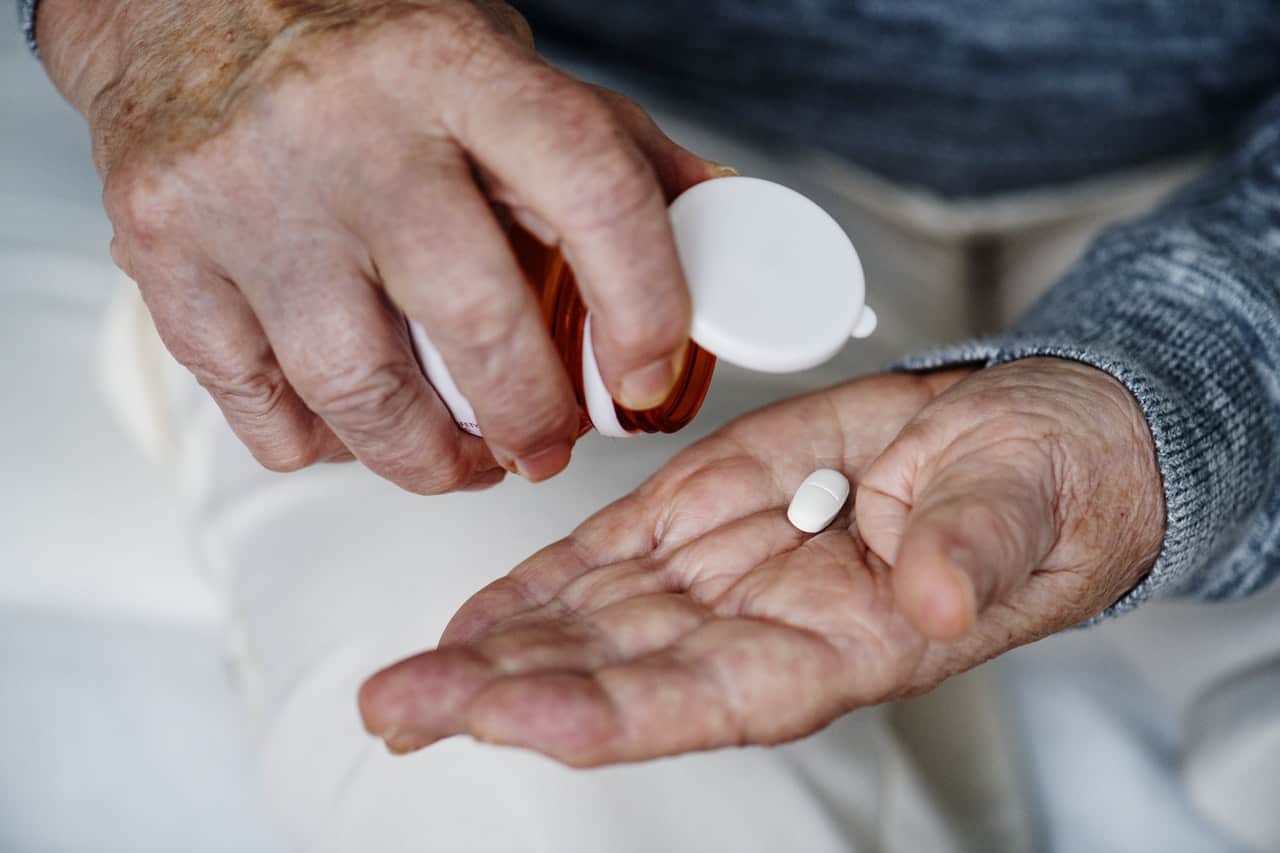Table of Contents
The ancient Greeks understood the importance of fiber supplements. Historians and anthropologists report they regularly chewed and ingested the hard, flavorless outer shell of grains, also called bran, to add bulk to their diets. But today, many diet trends and ways of eating neglect this vital macronutrient.
*This post may contain affiliate links. As an Amazon Associate we earn from qualifying purchases.
If your diet restricts fruits, vegetables, and whole grains, you may be lacking the fiber you need. Fiber protects us against heart disease, bowel cancers, and weight gain. Based on a 2,000 calorie diet, the recommended daily intake of fiber is 25 grams. Athletes require 35 grams or more of fiber daily.
Boosting your fiber intake helps to relieve and prevent painful constipation. And getting adequate amounts of fiber also helps control and regulate blood sugar and decreases the need for insulin production. To meet the recommended daily intake of 25 to 35 grams of fiber, eat plenty of fiber-rich foods like fruit, grains, and vegetables. However, if your diet restricts these ingredients, you should consider taking fiber supplements.

What Is Fiber?
Fiber is a type of carbohydrate found only in plant cells. Humans can’t absorb or break down the fiber. So, as the roughage passes through the GI tract, it absorbs water from the bowels and creates bulkier feces.
Without enough fiber, stools become soft and difficult to expel. Leaving residual stool may contribute to colon cancer. Interestingly, people on plant-based diets eat large amounts of fiber and have a lower incidence of colon and bowel cancer. There are a few types of fiber: soluble, insoluble, and prebiotic.
Not getting enough fiber impacts your health in a myriad of ways. Some short-term effects are chronic constipation, elevated blood sugar, increased HDL cholesterol, lowered LDL cholesterol, and increased triglycerides. Long-term effects of fiber deficiency include cardiovascular disease and colorectal cancer.
What is soluble fiber?
Water-soluble fiber absorbs water during digestion which increases the bulk of stools. Soluble fiber may also decrease cholesterol levels. There are varying amounts of soluble fiber in fruits, vegetables, dried beans, lentils, and some types of peas. You’ll also get soluble fiber from oats, oat bran, and barley.
What is insoluble fiber?
Insoluble or water-insoluble fiber doesn’t take on water and is unchanged during digestion. This type of fiber promotes regular bowel movements. Insoluble fiber is present in the skins of fruits, seeds, vegetable peels, and whole grain or stone ground products. The more natural and unprocessed the grain is, the more insoluble fiber it contains.
What is prebiotic fiber?
You’ve probably heard of probiotics; the good bacteria that live in your gut. They are critical to your digestive health and overall well being. But do you know about prebiotics? This type of fiber nourishes and feeds your probiotics. Prebiotic fiber is in banana, onion, garlic, the Jerusalem artichoke, chicory root, and some beans. Prebiotics pass through the small intestine unchanged and become fermented by the time they reach the large intestines and colon.
Signs You Need More Fiber
It’s not always clear when you need more fiber in your diet. If you experience symptoms such as bloating, constipation, weight gain, or cramping, chances are you need to increase your fiber intake. You can do this by taking a fiber supplement or eating certain foods like fruits and vegetables.

Why Are Fiber Supplements Important for Athletes?
All nutrients are essential to an athlete’s health and performance. However, you may need to approach fiber differently. Since fiber doesn’t digest, it isn’t used for energy. Furthermore, it provides no additional calories. Therefore, you have to obtain the calories needed for training from other macronutrients.
Some athletes avoid fiber because it can cause GI distress. Eating lots of fiber too close to a workout may cause bloating, stomach pain, or diarrhea during or shortly after working out. So, it’s imperative that you schedule your fiber intake for at least two hours from your scheduled training session. This planning ahead ensures adequate time for digestion and elimination before your workout.
Athletes Use These 5 Fiber Supplements to Ease the Way
For athletes who are unable to get enough fiber through their diet, supplements are potentially a good option. While nothing takes the place of dietary fiber and clean eating, the following supplements do help bridge the gaps.
For this list, we scoured hundreds of ratings and reviews, paying close attention to which products provided users with the best experience and outcomes. We used Amazon ratings as a convenient method to compare all of the products on our list. Here are the best fiber supplements for athletes, in no particular order. Please note that the FDA has not reviewed the claims of these fiber supplements and this article is not meant to be medical advice. Please contact your doctor if you have any symptoms that concern you.
[amazon link=”B07CYNYLPB” title=”1. Pure for Men” /]
[amazon box=”B07CYNYLPB”]
The tagline for this product says a lot: Stay Clean Stay Ready. Pure for Men fiber supplement promotes cleanliness of the digestive tract. The company claims that the ingredients work like a sponge to clean up after your meals. Unlike some other fiber supplements, the blend is supposed to reduce common side effects like nausea, bloating, gas, and cramps.
Ingredients and dosage
Pure for Men vegan formula contains psyllium husks, flax, aloe vera, and chia seeds. The manufacturer claims the formula has 50 percent more fiber per vegan gelatin capsule than other competitors. Amounts of each ingredient are not specified, but in total, there are 750 milligrams of fiber in each dose. Instructions say to take two to three capsules with a full glass of water twice a day.
Reviews
Customer experience is overwhelmingly positive. One customer confirms that the product really works when taken twice a day, as recommended. He says the only drawback is that Amazon sometimes runs out of stock. Each bottle contains 120 capsules which will last 30 to 60 days when taken as directed.
[amazon link=”B01GZ8HUK8″ title=”2. Jetsu Inulin” /]
[amazon box=”B01GZ8HUK8″]
This powder features prebiotic ingredients and inulin found in chicory root. Inulin fiber acts as a prebiotic, promoting the growth of probiotics or the bacteria in your digestive system. It is a very low-glycemic product which makes it perfect for users with diabetes. Consult with your physician if you are taking medications or are currently under the care of a medical doctor.
Ingredients and dosage
One five gram dose of inulin powder, taken three times daily, contains all the fiber and inulin you’ll need. Just mix it with water, coffee, tea (hot or cold), blend into smoothies, or add to juice. You can also bake it into recipes. This product is 100 percent natural and is also high-fiber, low-calorie, kosher, vegan-friendly, and is suitable for those who are sensitive to gluten.
Reviews
Most reviews are glowing. “It works!” says one reviewer. She says that though it makes liquids thicker, it has a pleasant taste and is easy to swallow. This will last 45 days when taken as suggested.
[amazon link=”B073WL4CYC” title=”3. Yerba Psyllium Whole Husks” /]
[amazon box=”B073WL4CYC”]
Psyllium, also called whole psyllium husks, is one of nature’s best insoluble fiber sources. The husks are outer shells of the Plantago seed. Since psyllium is a dietary supplement used mainly for its soluble fiber content, it is not typically considered a prime source of insoluble fiber.
Ingredients and dosage
Take Yerba Premium Whole Husk fiber supplement powder by mixing one scoop with eight ounces of your liquid of choice. It is recommended to start with a single dose daily, gradually increasing to three servings per day or as much as you need to restore normal digestive function.
Reviews
Customers love the results but warn that it is coarser than inulin powder. Although, it is finer than other brands of whole psyllium husks on the market.
[amazon link=”B00B8YUQXS” title=”4. Optimum Nutrition Fitness Fiber” /]
[amazon box=”B00B8YUQXS”]
Fitness Fiber has the fitness-conscious athlete in mind. It uses six natural fiber sources to ensure results. It mixes easy, and the texture is smooth, not grainy. This product is unflavored. Therefore, you can mix it with your favorite drinks without distorting the flavor.
Ingredients and dosage
One five gram dose meets the recommended daily dose of fiber. To support athletes, the formula contains polydextrose, maltodextrin, guar gum, inulin, psyllium husk, and gum arabic. The instructions are simple; measure and mix.
Reviews
One review describes the product as “tasteless,” but they probably meant unflavored.
[amazon link=”B0000VLWZQ” title=”5. FiberCon Fiber Therapy for Regularity” /]
[amazon box=”B0000VLWZQ”]
This brand of fiber supplements has been around for decades, but only recently entered into the fitness space. FiberCon Fiber Therapy works by bulking up stools for an easier bowel movement. If symptoms persist after using the product for two weeks, seek medical advice.
Ingredients and dosage
The recommended daily dose is two caplets. Gradually increase to two capsules four times a day. Continue taking the higher dose until your symptoms improve. FiberCon works naturally, therefore, it takes several days of continued use to see the results. The main ingredient is psyllium. It also contains 625 milligrams of calcium polycarbophil to support gut health.
Reviews
This is one of the most affordable fiber supplements.
Comparison Table
|
Product |
Image |
Rating |
Price |
|---|---|---|---|
|
[amazon link=”B07CYNYLPB” title=”1. Pure for Men” /] |
[amazon fields=”B07CYNYLPB” value=”thumb” image_align=”center”] |
[amazon fields=”B07CYNYLPB” value=”button”] |
|
|
[amazon link=”B01GZ8HUK8″ title=”2. Jetsu Inulin” /] |
[amazon fields=”B01GZ8HUK8″ value=”thumb” image_align=”center”] |
[amazon fields=”B01GZ8HUK8″ value=”button”] |
|
|
[amazon link=”B073WL4CYC” title=”3. Yerba Psyllium Whole Husks” /] |
[amazon fields=”B073WL4CYC” value=”thumb” image_align=”center”] |
[amazon fields=”B073WL4CYC” value=”button”] |
|
|
[amazon link=”B00B8YUQXS” title=”4. Optimum Nutrition Fitness Fiber” /] |
[amazon fields=”B00B8YUQXS” value=”thumb” image_align=”center”] |
[amazon fields=”B00B8YUQXS” value=”button”] |
|
|
[amazon link=”B0000VLWZQ” title=”5. FiberCon Fiber Therapy for Regularity” /] |
[amazon fields=”B0000VLWZQ” value=”thumb” image_align=”center”] |
[amazon fields=”B0000VLWZQ” value=”button”] |
Highest Fiber Foods
All plant-based foods contain fiber in various amounts. If you are looking for a quick way to increase your fiber intake, choose these high-fiber foods.
- Split peas: 1 cup has 16 grams of fiber
- Black beans: 1 cup has 15 grams of fiber
- Baked beans: 1 cup has 15 grams of fiber
- Chia seeds: 1 cup has 10 grams of fiber
- Green peas: 1 cup has 8 grams of fiber
- Broccoli: 1 cup has 5 grams of fiber
- Whole grains and whole grain cereal: 1 cup has 6 grams of fiber
- Quinoa: 1 cup has 5 grams of fiber
- Whole wheat pasta: 1 cup has 5 grams of fiber
Too Much of a Good Thing
Is it possible to ingest too much fiber? Yes. Surprisingly, fiber deficiencies share many of the same symptoms with fiber excesses. Namely, bloating, constipation, diarrhea, and weight gain. But how much is too much? Experts say that 70 grams of fiber in 24 hours causes uncomfortable side effects. Some people experience symptoms after just 40 grams of fiber.
Fiber Clears the Way
Athletes need increased fiber to maintain a healthy digestive system. Inadequate fiber intake affects your performance. Getting the right amount and type of fiber is critical. If your diet is lacking the recommended daily dose of fiber, the best remedy is to increase your intake of fiber-rich foods like fruits, veggies, unrefined whole grains, and seeds.
If you’re an athlete who uses more calories, you will require more fiber in your diet. Importantly, fiber supplements don’t take the place of dietary fiber from food sources. However, they will bridge the gap.

